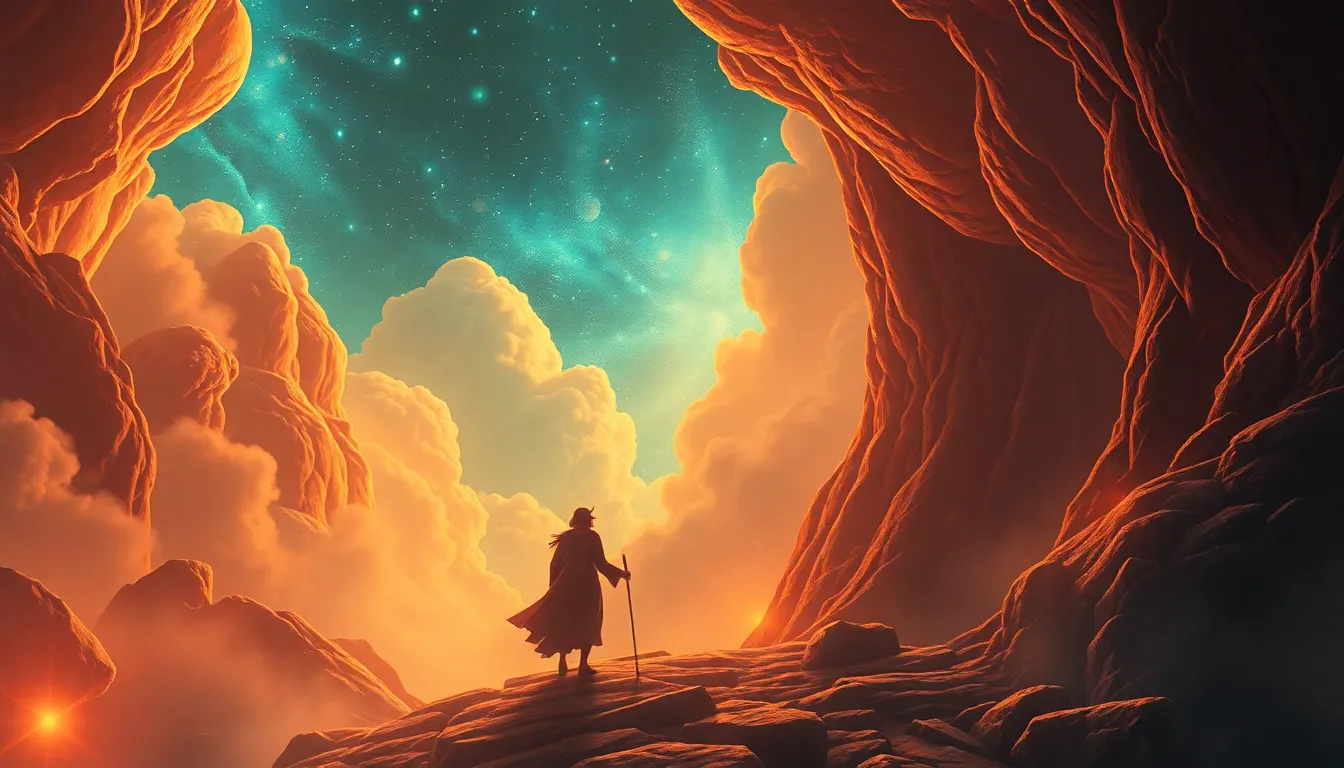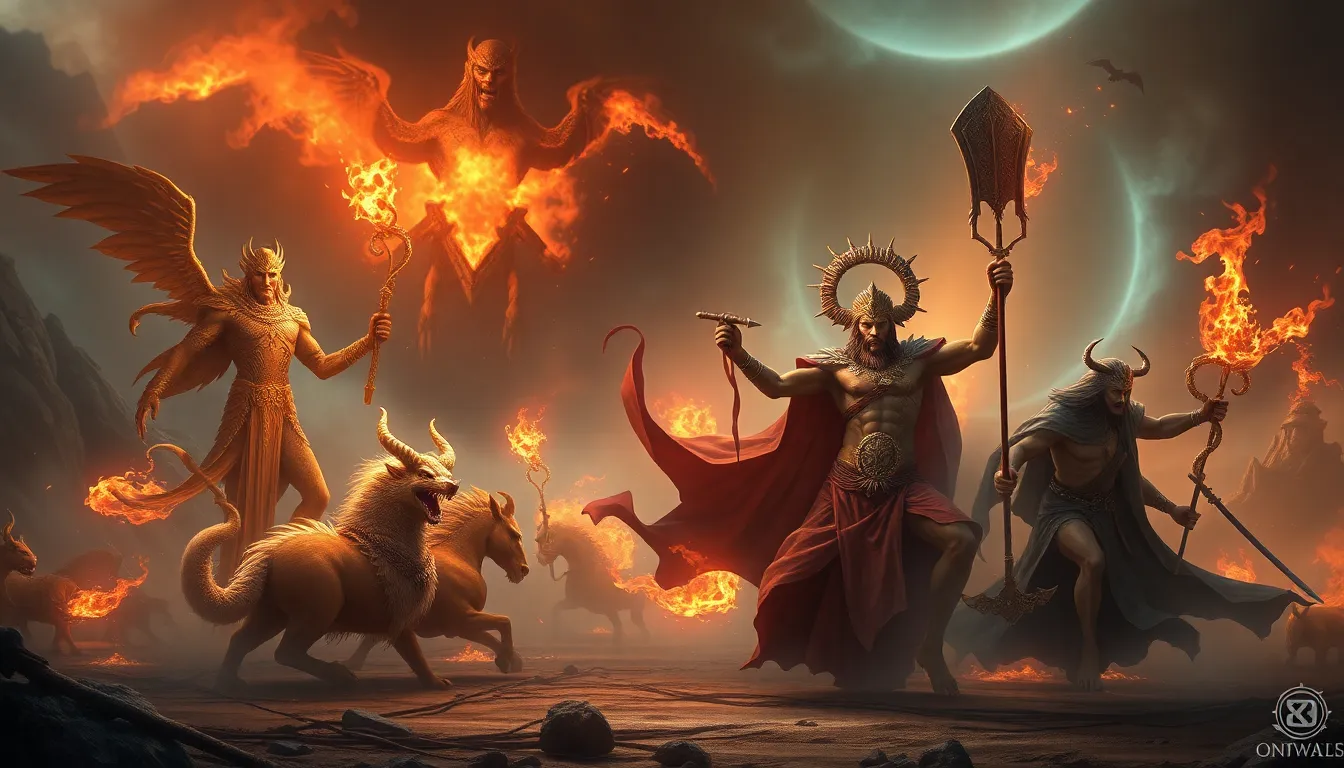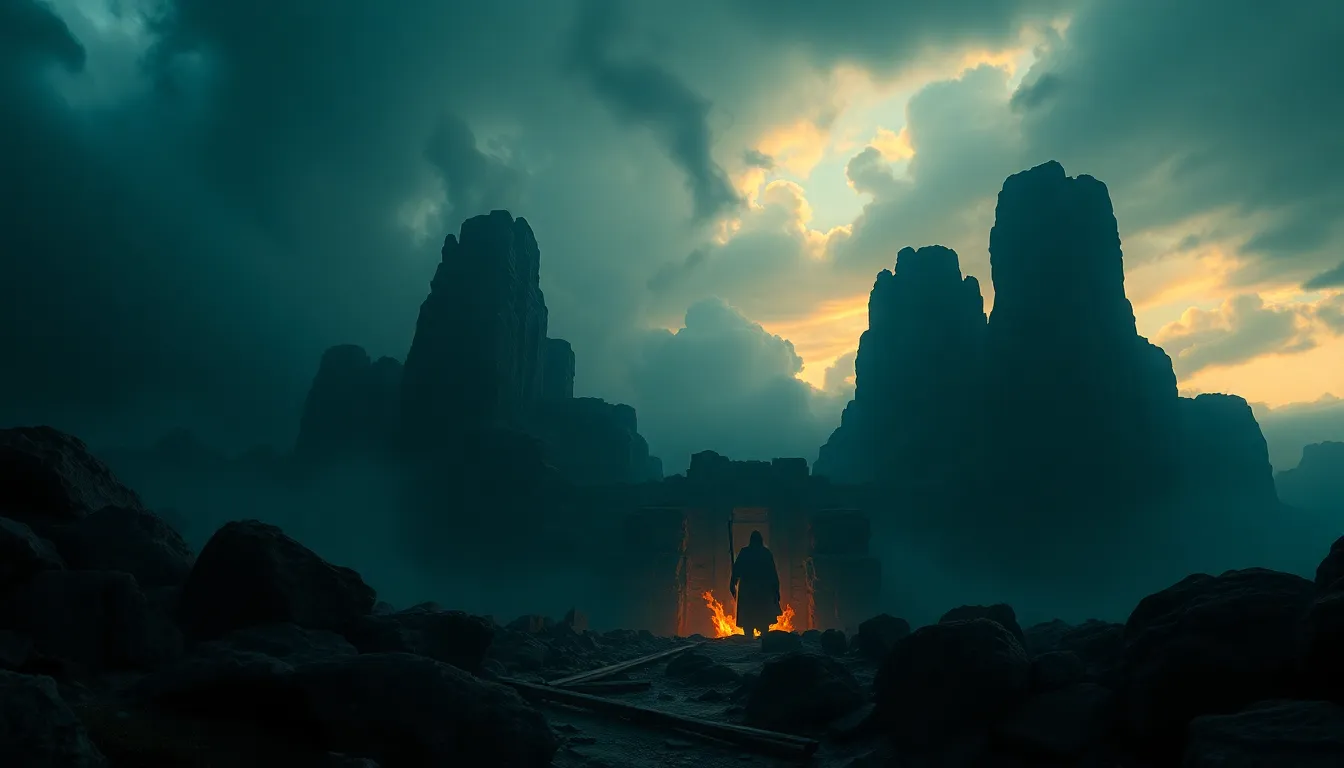The Mythical Journey: How Creation Stories Reflect Our Lives
I. Introduction
Creation stories, often referred to as myths, are narratives that explain the origins of the world and humanity. They serve as foundational tales for cultures, encapsulating their values, beliefs, and understanding of existence. These stories, whether religious or secular, provide insight into the human experience and our relationship with the universe.
The importance of myths in human culture cannot be overstated. They are not just stories; they are the frameworks through which societies interpret their realities, impart wisdom, and foster communal identities. This article aims to explore the multifaceted nature of creation stories, their significance across cultures, and their implications for our personal and collective identities.
II. The Role of Creation Stories in Different Cultures
Creation myths vary enormously across cultures, reflecting the diverse experiences and environments of different peoples. Examples include:
- Genesis: The Judeo-Christian creation story that describes God creating the world in six days.
- The Big Bang: A scientific explanation of the universe’s origins, emphasizing an evolutionary perspective.
- Hindu Creation Myths: Various accounts, such as the cosmic ocean’s churning that produced the universe and its deities.
Despite their differences, several common themes and motifs emerge across these narratives. For instance, many creation myths feature the themes of chaos and order, the significance of a creator, and the idea of a primordial state. Local geography and culture significantly shape these myths, with stories reflecting the natural elements, historical contexts, and societal values of their origin.
III. The Psychological Significance of Creation Myths
According to Carl Jung, creation myths tap into archetypes and the collective unconscious, universal symbols and themes that transcend individual cultures. These stories resonate with our psyche, addressing fundamental human concerns such as existence, identity, and the nature of reality.
Creation stories also serve as mirrors reflecting our personal struggles. They address existential questions, helping individuals navigate their lives and understand their place in the world. Through storytelling, myths foster personal identity formation, allowing individuals to connect their life experiences with broader narratives of humanity.
IV. Creation Myths and the Human Experience
Creation myths are intricately linked to the various stages of the human experience: birth, growth, and death. They provide context for life’s transitions and challenges, often serving as metaphors for personal and communal struggles. For example:
- Birth: Many cultures view creation as a new beginning, akin to the birth of a child.
- Growth: Myths often explore the journey of self-discovery and personal development.
- Death: Creation stories frequently address mortality, the cycle of life, and what lies beyond.
Case studies of individuals who resonate with specific myths reveal the powerful impact these stories have on personal narratives. For instance, someone who identifies with the tale of Persephone may find meaning in themes of transformation and seasonal change, reflecting their own life experiences.
V. The Influence of Creation Stories on Morality and Ethics
Embedded within creation myths are moral lessons that guide societal values and norms. These stories often illustrate concepts of good versus evil, justice, and the responsibilities of humanity towards each other and the environment. Some key points include:
- The moral dilemmas faced by characters in these myths often serve as cautionary tales.
- Many cultures draw on their creation stories to shape their laws and ethical guidelines.
- Ancient morals continue to resonate in contemporary issues, providing frameworks for discussions on ethics and morality.
VI. The Evolution of Creation Myths Over Time
Creation myths evolve alongside societies, reflecting historical contexts and transformations. As cultures interact and change, so do their narratives. The impact of science and technology has also influenced traditional myths, challenging or reinterpreting ancient stories in light of new discoveries.
Modern reinterpretations of creation myths are prevalent in literature and art, often reimagining ancient tales to address contemporary themes such as environmentalism, gender roles, and social justice. These adaptations highlight the relevance of creation stories in today’s world.
VII. Creation Myths in Popular Culture
The representation of creation stories in popular culture is abundant, with literature, film, and art drawing inspiration from ancient narratives. Notable examples include:
- Literature: Novels like “American Gods” by Neil Gaiman weave together various creation myths into a modern narrative.
- Film: Movies such as “The Fountain” explore themes of creation and existence through a cinematic lens.
- Art: Artists often reinterpret myths, using visual mediums to express complex ideas surrounding creation and identity.
The impact of these adaptations on societal beliefs and values can be profound, shaping public perception and understanding of these ancient stories.
VIII. Personal Reflection: Finding Individual Meaning in Creation Stories
Exploring personal connections to creation myths can be a deeply enriching experience. Readers are encouraged to reflect on their own lives and the myths that resonate with them. Here are some journaling prompts and reflection exercises:
- What creation story resonates with you the most, and why?
- How do you see your own life reflecting the themes found in this myth?
- What lessons can you draw from these stories to guide your personal journey?
Sharing personal stories and insights can foster a deeper understanding of how creation myths shape our identities and experiences.
IX. The Future of Creation Stories in a Globalized World
As the world becomes increasingly interconnected, the blending of myths in multicultural societies presents both challenges and opportunities. The preservation of traditional narratives is critical, as globalization can lead to the dilution of unique cultural stories.
However, the digital age also offers a platform for new creation stories to emerge, reflecting contemporary issues and diverse experiences. The potential for innovation in myth-making is vast, suggesting a future where creation stories continue to evolve and inspire.
X. Conclusion
In summary, creation stories play a crucial role in shaping human experience, providing insight into our origins, values, and identities. They reflect our collective psyche and offer moral guidance, while also evolving over time to remain relevant in changing contexts.
As we explore the depths of these myths, we are encouraged to appreciate their enduring relevance and to seek connections between our lives and the stories that have shaped humanity. Let us continue to investigate and celebrate the rich tapestry of creation myths that inform our understanding of existence.



